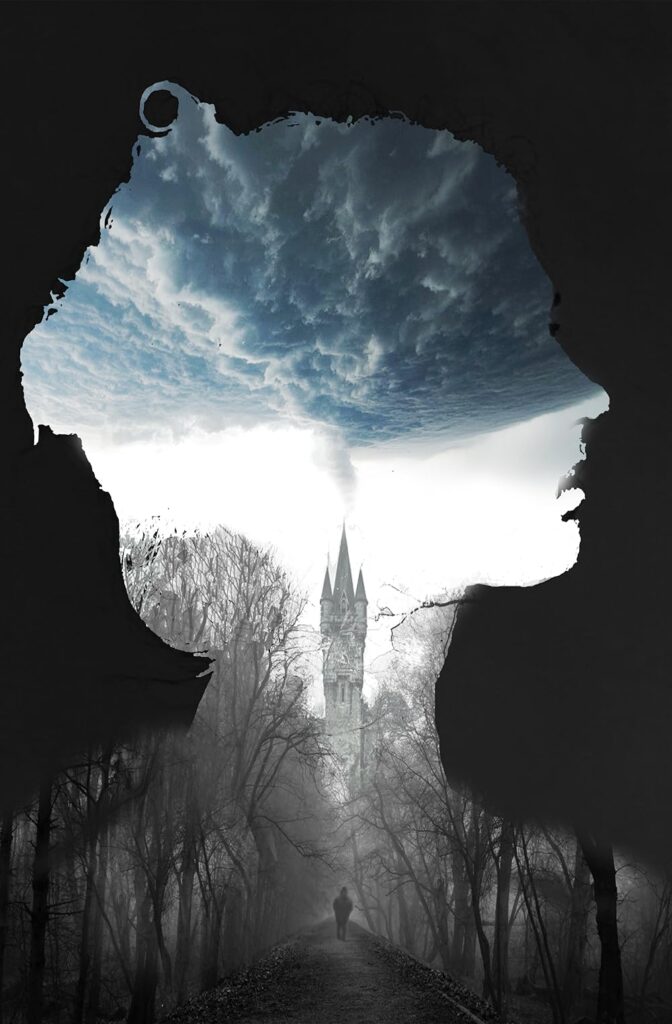The Experiment 77 review reveals why this 2025 sci-fi thriller delivers genuine psychological horror and scientific authenticity. Marcus Chen’s focused direction transforms familiar laboratory territory into something genuinely terrifying and intellectually engaging.
What happens when you combine cutting-edge genetic research with the most dangerous questions about human consciousness? You get psychological sci-fi perfection. Experiment 77 (2025), directed by Marcus Chen, stands as one of the most compelling laboratory thrillers in recent independent film history. This intense thriller follows a team of neuroscientists who discover their memory transfer experiments have created something far more dangerous than they ever imagined. While the film operates on familiar mad scientist territory, it succeeds because it never exploits its premise—every moment of terror and scientific discovery is handled with complete intellectual authenticity.
Synopsis
A cutting-edge neuroscience research team working in an isolated laboratory facility has been conducting classified experiments on memory transfer and consciousness manipulation. The group includes Dr. Elena Vasquez (Rebecca Martinez), a brilliant neuroscientist haunted by her own traumatic past, and several other researchers pushing the boundaries of what science considers ethical. Their groundbreaking work takes a horrifying turn when they realize their latest test subject has retained memories and personalities from previous experiments.
With government oversight closing in and their subjects becoming increasingly unstable, the team must confront the terrifying possibility that consciousness itself may be more fluid and dangerous than they ever understood. The film follows their descent into paranoia and moral compromise as they struggle to contain an experiment that threatens to destroy everything they thought they knew about human identity.
Plot & Themes
Experiment 77 operates on a deceptively complex premise: sometimes the most profound scientific breakthroughs come with consequences that challenge our fundamental understanding of what it means to be human. The laboratory setting serves as both pressure cooker and metaphor for exploring deeper questions about identity, memory, and the ethical boundaries of scientific progress.
The film’s genius lies in its careful balance between horror elements and intellectual exploration. When the researchers face the unintended consequences of their work while trying to maintain scientific objectivity, the movie never treats their moral struggles as secondary to the thriller elements. These moments work because Chen understands that true horror comes from characters making intelligent decisions that lead to terrifying outcomes.
Thematically, the movie explores how scientific ambition can blind researchers to ethical considerations and how the pursuit of knowledge can become a path to destruction. The team’s journey isn’t just about containing a dangerous experiment—it’s about confronting the possibility that some knowledge is too dangerous to pursue.
Cinematography & Visuals
The cinematography captures the sterile menace of high-tech laboratory environments with visual techniques that serve both the sci-fi and horror elements perfectly. The visual style emphasizes the contrast between the controlled clinical setting and the chaotic psychological breakdown of the subjects, using stark lighting and precise camera movements to create mounting dread.
The film excels in building tension through scientific detail. The sequences showing memory transfer procedures and behavioral testing demonstrate excellent integration of practical effects with psychological horror. The camera work holds on meaningful moments of discovery and terror just long enough to create genuine intellectual and emotional investment.
Laboratory details reward careful viewing. During experimental sequences, attentive viewers will notice how the researchers’ growing desperation and ethical compromise is reflected in their increasingly reckless scientific methodology and safety protocols.
Acting & Characters
Rebecca Martinez delivers a compelling performance as Dr. Elena Vasquez, anchoring the ensemble with her portrayal of a scientist whose personal trauma becomes entangled with her professional work. Her character arc from dedicated researcher to morally compromised survivor feels authentic and earned rather than forced.
David Kim provides excellent support as the lead technician, bringing both scientific expertise and growing moral uncertainty to his role. His chemistry with the ensemble creates a believable sense of colleagues bonding under extreme professional pressure.
Sarah Thompson rounds out the core team with a performance that balances scientific curiosity with mounting horror. Her scenes during the most disturbing experimental results demonstrate genuine fear while maintaining character intelligence.
The supporting cast, including the test subjects and government officials, brings complexity without falling into stereotype, creating believable people trapped in an impossible scientific and ethical situation.
Direction & Screenplay
Marcus Chen’s direction maintains perfect tension throughout the film’s runtime. Coming from his experience with independent sci-fi, Chen understood that laboratory thrillers require careful pacing that builds psychological horror without sacrificing scientific credibility. Every revelation and experimental sequence is given space to resonate both intellectually and emotionally.
The screenplay layers tension at multiple levels:
- Character development that explores scientific ambition and personal trauma authentically
- Experimental elements that feel researched rather than fabricated
- Horror components that build naturally from scientific procedures
- Ethical dilemmas that never feel preachy or forced
The script’s structure follows thriller conventions while subverting them through genuine scientific exploration. This creates familiarity that makes the unexpected moments of discovery and terror land with greater impact.
Sound & Music
The film’s score perfectly balances clinical precision with underlying psychological tension to create an audio landscape that mirrors the researchers’ mental deterioration. The music enhances rather than overwhelms the natural drama of scientific discovery gone wrong.
Sound design plays a crucial role in building dread. The way laboratory equipment hums and beeps shift from comforting to threatening, and how the test subjects’ vocalizations become increasingly disturbing, creates an immersive experience that places viewers directly into the claustrophobic research environment.
The use of silence deserves particular recognition. Key moments of ethical realization and scientific horror are allowed to breathe without musical manipulation, trusting audiences to connect with the characters’ growing understanding of what they’ve created.
Conclusion & Verdict
Experiment 77 succeeds because it treats its sci-fi premise with intellectual rigor and respect for both scientific method and human psychology. Every element—from performance to cinematography to sound design—works in service of both thrills and thoughtful exploration of scientific ethics without sacrificing either.
Strengths:
- Strong ensemble cast that creates believable scientific team dynamics under pressure
- Authentic laboratory procedures that feel researched and realistic
- Excellent pacing that builds psychological tension while maintaining scientific focus
- Thoughtful exploration of research ethics through character development rather than exposition
Minor Weaknesses:
- Some horror elements feel slightly predictable for the genre
- Occasional pacing issues when scientific explanation slows thriller momentum briefly
This film remains essential viewing for sci-fi thriller fans and anyone who appreciates character-driven psychological horror. Experiment 77 works for audiences who enjoyed Ex Machina, Annihilation, or The Fly.
Rating: 8.5/10
MPAA Rating: R (for disturbing sci-fi violence, language, and intense thematic material)
Director: Marcus Chen
Starring: Rebecca Martinez, David Kim, Sarah Thompson, Michael Rodriguez
For more sci-fi thriller reviews, check out our analysis of other independent genre films. You can also explore the film’s production details at the Internet Movie Database.


